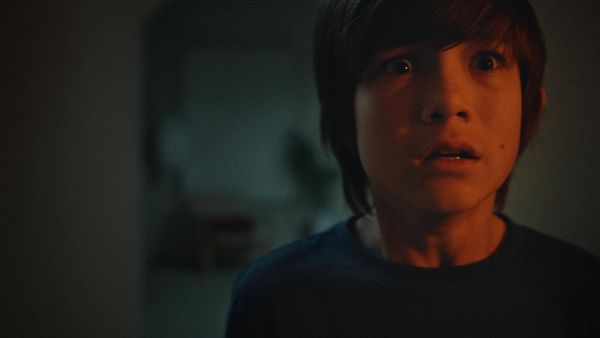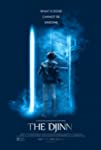Eye For Film >> Movies >> The Djinn (2021) Film Review
The Djinn
Reviewed by: Jennie Kermode

What is done cannot be undone.
In the most famous text on djinn, al-Tabasi's Shamil, there are two ways to approach their invocation in sorcery. One is with pure intent, in the path of God. The other is with self-interest, contrary to God's plan. It's not always as easy to distinguish the two as you might think. That's why it's vital for anyone engaging with magic to have a good understanding of themselves - and if they don't have that when they begin, they'd better figure it out quickly.
David Charbonier and Justin Powell's film doesn't do much explaining of matters like this. There is only one scene involving heavy exposition, and that's simply a discovery of rules, intended to startle and (at least briefly) overwhelm. As directors, they're more interested in showing than in telling. What they do show requires a bit of education if it is to be fully understood, but it's so beautifully delivered that you'll still get a lot out of the film if you don't catch it all, and you may be left with the pleasure of piecing it all together on repeat viewings.
Young protagonist Dylan (Ezra Dewey) isn't equipped to deliver much exposition himself as he's mute, and although he can communicate by signing, he's alone for much of the film. We see him at the start with his father (Rob Brownstein) in the home they have recently moved to. There's clearly a strong, loving bond between the two. They have both experienced bereavement and the father has done all he can to help the boy. Now they have to get on with their lives. For the father, that means going out to work an overnight shift as a radio DJ (a man to whom words might come almost too easily). For Dylan, it means there's an opportunity to experiment with something he has found: a book, apparently left by the apartment's previous tenant, full of magical rituals.
Dylan wants a voice. This isn't just the typical desire borne of frustration with an impairment and others' unwillingness to accommodate it - it's closely linked to his grief. Within the pages of the book is a ritual for summoning a djinn. Performing it, he understands that if he can survive the night, his wish may be granted. Is this a child's innocent wish, watched over by a God who intends him to heal? Or is it something else - and will he have to pay the djinn's price?
This is far more than just a monster movie. A djinn is not simply good or evil; it is understood traditionally as a creature created by God in parallel with humans, operating according to a different set of rules. Its logic is alien, and this is brilliantly conveyed by John Erickson, and by other actors who play people whose form it has taken at various stages. Its differentness makes it frightening because it's so hard to predict, and it has absolutely no compunctions about harming Dylan because he's a child. What does it want? That's even trickier to get at. Is it after the boy's soul? At times it tortures him, seeming to have deadly intent. At times, in its obscure, sidelong way, it helps him. He must confront the source of his grief and the guilt pertaining to it. He must come to understand both his powers and his limitations.
Almost all of this takes place in a single setting, with barely a glimpse through a window or a door. The djinn's only real restriction is that it cannot see (its other weaknesses are, at any rate, beyond Dylan's knowledge). As it strains to locate him by listening or sniffing him out, he must control his rising panic and move around stealthily, using all his ingenuity to outwit it. The camerawork framing this is brilliantly handled. Dewey is an excellent choice of lead, needing nothing so crude as dialogue in order to express himself and invite the viewer into his world. The film's restraints work in its favour, forcing all involved to deliver their best work and serving up some serious chills in the process.
Magic, whether sorcerous or cinematic, is an intellectual pursuit. The law of the West applies: do it for long enough and one will inevitably encounter someone (or something) sharper and faster. Emotions, even of the noblest sort, can be treacherous. Dylan bears scars both physical and emotional. Recognising a mistake does not ensure salvation. What is done cannot be undone.
Reviewed on: 12 May 2021
















